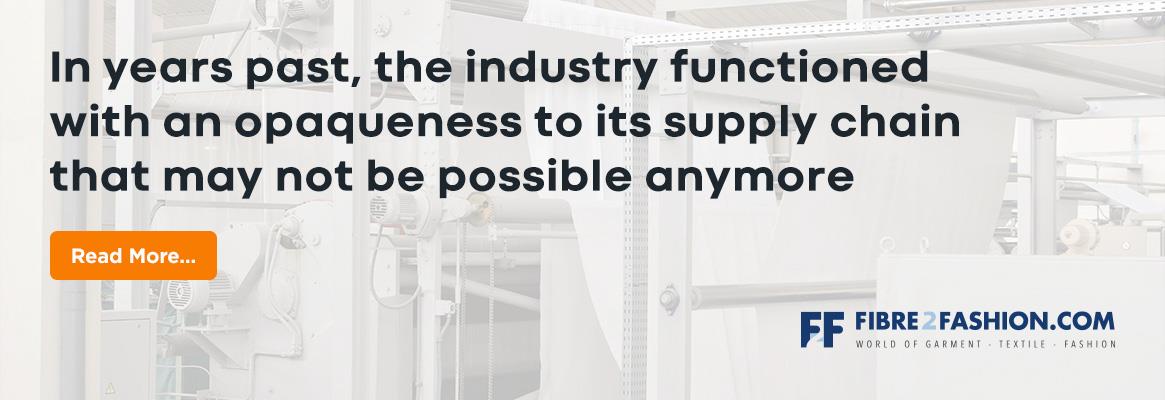The pandemic has highlighted weaknesses in traditional business practices. It has also underscored the inherent inequities of the consumer society. Robert Antoshak suggests ways to repel the challenges the textile industry faces today.
We live in grim times. Covid has turned the world upside down. The planet's environment is under assault. Governments are under pressure, while vast swaths of the world's population feel exploited by elites. And wasn't globalisation supposed to be the answer for prosperity for all? Well, it didn't turn out that way. Instead, it has just bred more economic inequality and social unrest.
As our global textile and apparel industry functions daily, broader societal concerns may not be top of mind. This is mainly the case when the practical matters of running a business necessarily takes precedence. For example, what's the price of cotton? Are workers meeting their production goals? Is our quality good? What does the next contract with my buyers look like? Will there be another contract? How do I handle my bankers? And on and on …
Innovate and Create
But tough times and hard-to-solve problems require innovative solutions. So, if there's anything our industry is good at is innovation. And that represents our first challenge: how do we continue to innovate? Some critics have characterised our industry as simply a collection of people who just copy one another. But that's to truly miss the point about the creative process of innovation, which relies heavily on design in our industry.
New designs in the clothing business begin with inspiration, which often comes from the designs of others. In textiles, consider innovative new technologies like laser cutting, greater manufacturing efficiencies such as high-speed looms, and improved product development processes and sampling realised in new online software and services. The development of such technologies is a creative endeavour to improve the function of textile manufacturing.
Sourcing: Trading Everyone's Problems?
And then there's the challenge of sourcing. Currently, globalisation is under assault from some for causing many problems. But such issues go hand-in-hand with great successes. For instance, there are more products available at better prices for more customers worldwide than ever before. But, again, that's a testament to our industry's ability to rapidly make products that the market desires.
Along with that, large swaths of the developing world have been able to pull out of the dreadful cycles of poverty and deprivation endured by so many people before the end of trading restrictions, the opening of global markets, the adoption of rules-based management of international trade via organisations like the WTO.
But then there are costs we can no longer ignore. Our industry's carbon footprint is enormous, as is its chemical pollution. Global climate change? We're partially responsible for that. Our industry needs to see itself more holistically. After all, we don't function in isolation. Our industry forms the economic backbone of so many countries in the developing world. As such, our industry touches the lives of millions of people around the globe.
Like it or not, the truth is our industry has a history of labour exploitation, and production pre-Covid came with steep environmental costs. Because of all of this, we are responsible to humanity to be the best we can be. Innovate, yes, but treat our workers with respect and take meaningful steps to protect our planet's environment.
So has globalisation gone too far? It's an important question that stumps a lot of people. Some are even offended when asked that: "Hey, I'm just doing my business; what's wrong with that?" Others point out doing business comes with costs beyond simply the price of raw materials or the price paid by customers. But it's hard to undo globalisation and hard to contemplate it being unwound.
Improving Relationships in the Supply Chain
Another challenge remains to build better relationships between manufacturers and buyers. We've all seen the stories: Covid breaks loose, countries lockdown, and buyers cancel orders for products that have already been made. It was a mess. Some of which has been made right, but some of which will never be made right.
A supply chain must be just that: a chain. And without close coordination and cooperation between buyers and sellers, supply chains will fail. Moreover, with the unknowns of the pandemic, supply chains, by their very nature, were subjected to tensions they were never designed to sustain. Today's supply chains are marvels of just-in-time delivery -- only until they're not. The pandemic has proven that. As a result, shipping costs have soared, ports are overloaded, and demand from buying countries is not as predictable as it once may have been. To ride out these disruptions, people will have to intervene, improvise, and innovate.
Planning for a Post-Covid World
Obviously, the world needs to beat Covid. But, until the world moves beyond the pandemic, the functioning of our industry will be perpetually subject to disruptions. Such as country-wide lockdowns, viral outbreaks, and fragile supply chains. But what should our industry look like after Covid? That's the central question of our times.
When viewed from the prism of economics, the pandemic has highlighted weaknesses in traditional business practices. It has also underscored the inherent inequities of consumer society. Buying tonnes of stuff just to have the latest and great style or fashion comes with an ugly underside.
In years past, the industry functioned with an opaqueness to its supply chain that may not be possible anymore. Because of the pandemic, many consumers are re-evaluating what's most important in their lives. Does an extra three, four, or five pairs of jeans in the closet make any sense when one or two will do? That's a question many consumers are asking.
They also want to know where and how a garment is made. The more these consumers dig on the internet, the more they learn and reject how garments are made. In short, they want more transparency. And some want less stuff, which flies in the face of our industry's tendency of over-production.
Work Hard Today for a Better Tomorrow
In many ways, our industry should take a step back and re-evaluate itself. Of course, everyone wants to make a living, but at what cost to the environment, fellow citizens, and the world? It will require a lot of hard work to reinvent an industry that some feel doesn't need fixing, while so many others insist it so desperately does.
Yet, it is through such adversity that our industry can rise to meet these and other challenges. In many ways, this is our time to shine -- to find new ways of doing business and excel in what we do best: innovate! We can't allow ourselves to knuckle under to the bad times in which we live. There will be better tomorrow if we build for better times.
As the great American president Abraham Lincoln once said, "The best way to predict the future is to create it." We can predict better times if we work hard at creating the foundations of a better future -- now.











Comments